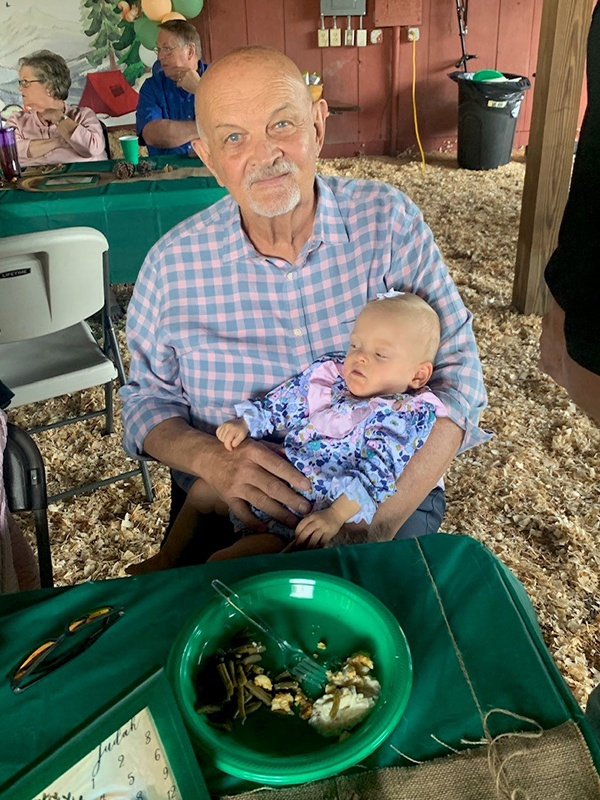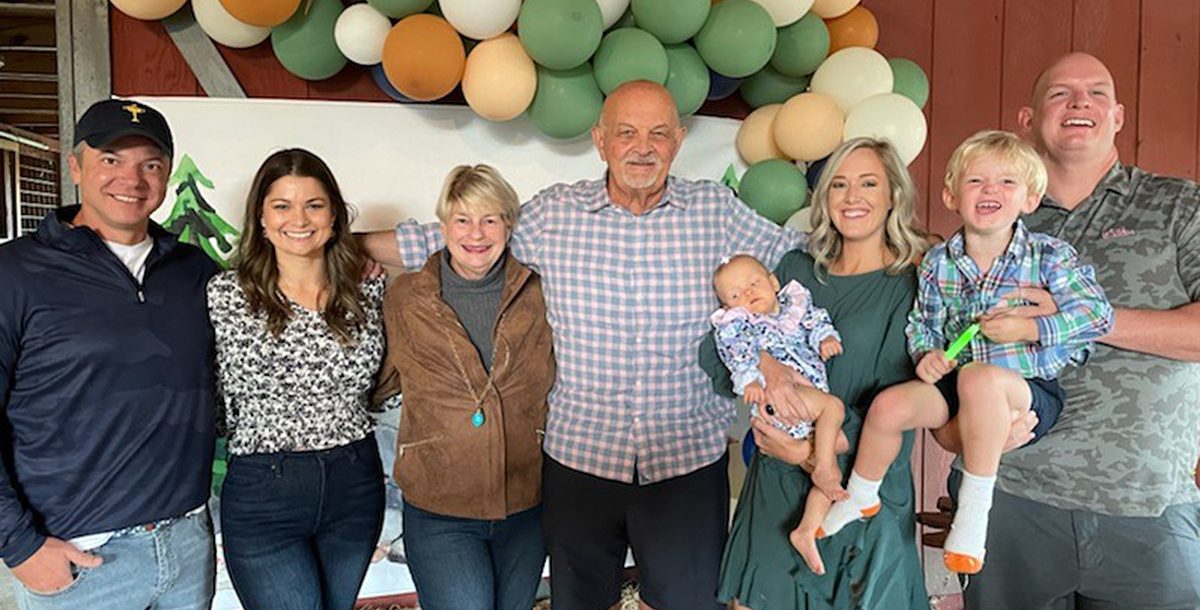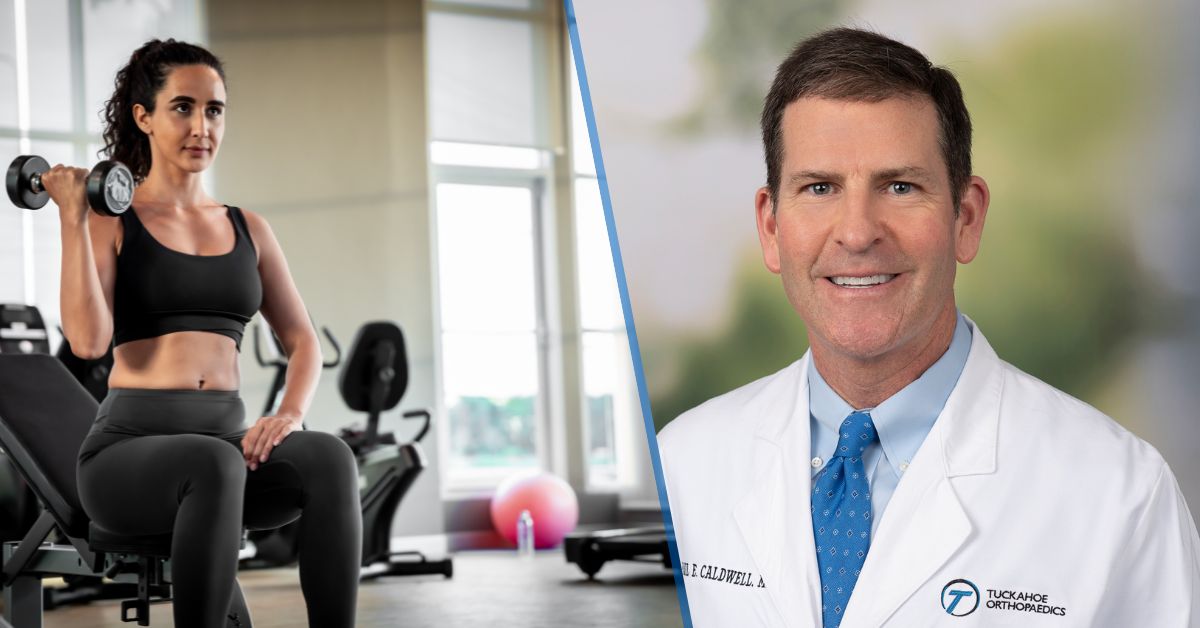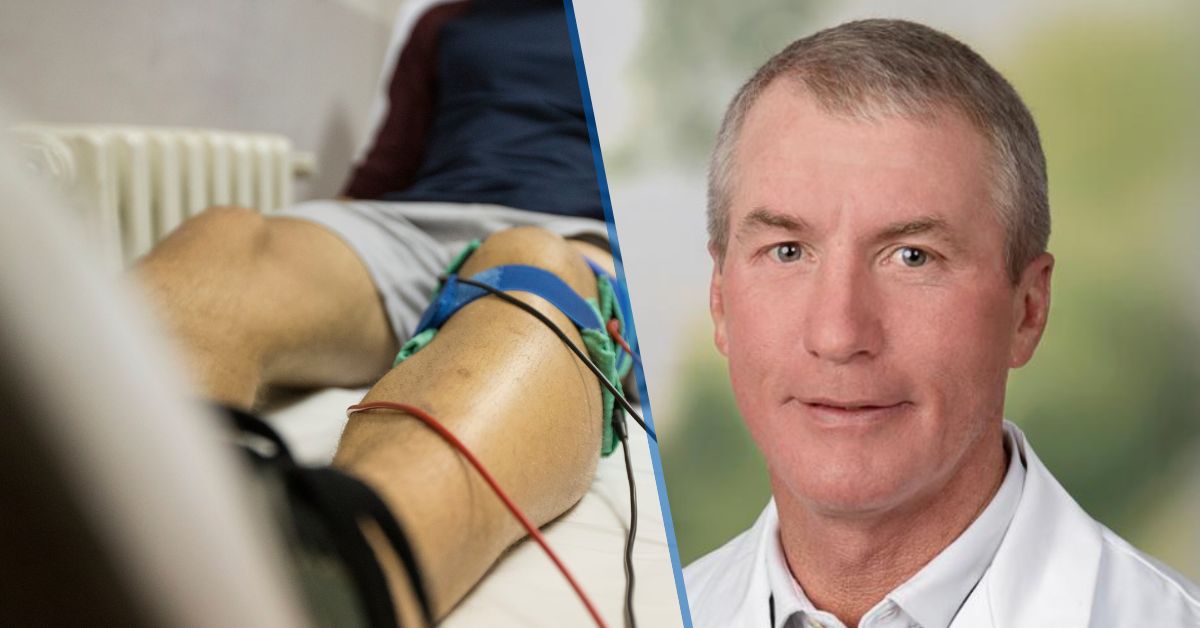
Throughout his life, Paul Gillis has always been highly active. He frequently worked out in the gym, played college football and even ran a marathon.
Just because he was getting older didn’t mean he planned to slow down. However, his body was having a hard time keeping up. Eventually, that brought Paul to our care team for two total knee replacements and a total hip replacement.
To have those procedures done, Paul first had to go through the Joint Camp – a comprehensive program that prepares patients for surgery and helps shorten recovery time. The program works by educating patients about the procedure they’re having done and what to expect. It also includes health screenings a few weeks before their procedure to ensure the patient is in optimal health for surgery.
Paul expected to pass the screenings with flying colors, but that’s not what happened.
“I heard a murmur when listening to his heart, which is a hard stop for us,” Julia Sayegh, the registered nurse who performed Paul’s screening, shares. “We never know if it’s nothing – just something anatomical – or if it’s a sign of a more serious issue. Different types of murmurs also mean different things when dealing with spinal anesthesia, which is typically used in a lot of knee and hip replacements.”
An ultrasound of Paul’s heart revealed critical aortic stenosis, a potentially life-threatening condition in which the heart’s aortic valve narrows, reducing blood flow from the heart to the rest of your body.
“When you have done everything in your life without feeling anything wrong or feeling tired, receiving news like this can be quite a shock,” Paul shares. “Joint Camp saved my life. I had no symptoms of any heart trouble, and I never thought I had any issues. If it weren’t for nurse Julia, I may have been living my normal life in one moment and in serious trouble the next.”
Believe it or not, Paul’s story isn’t a unique one.
“More often than not, we do find something abnormal with patients, and they’re usually surprised,” Julia explains. “We probably hear heart murmurs on average about three to six times a week – that’s not necessarily critical like in Paul’s case but it’s certainly something that needs evaluation and possible follow up.”
Julia continues, “that’s why Joint Camp is so important, because a lot of these patients don’t have a primary care provider. And even if they do, they only see them once a year for a check of the basics. This provides a comprehensive evaluation and oftentimes things are stopped.”
Julia emphasizes that finding an issue doesn’t mean these patients can’t have their surgery. It may mean postponing it to address the underlying issue first. Overall, making sure patients are as healthy as possible before going into surgery optimizes their safety and the results of those procedures.
“It might even be a good cue for their primary care provider that something needs to be watched more closely or followed up on,” Julia says. “After their procedure is done, we aren’t seeing them but if their doctor knows their kidney labs were elevated or their lungs sounded funny, they know what to watch for and can follow up with more testing down the road if needed.”
As for Paul, he was referred to Bon Secours Upstate Cardiology where he had a transcatheter aortic valve replacement (TAVR) procedure to address his heart problem. That allowed him to return and successfully complete his hip replacement a short time later.
“Dr. Dylan Watson and his staff were so professional and accommodating to me,” Paul shares. “They are just so great to the patients. They work very hard to make sure you are comfortable with your surgery and confident in your ability to make a full recovery.”
Learn more about our joint replacement services on our orthopedics and sports medicine page.
Live in the Greenville, SC area? Learn more about Bon Secours Piedmont Orthopedics and Joint Camp.





